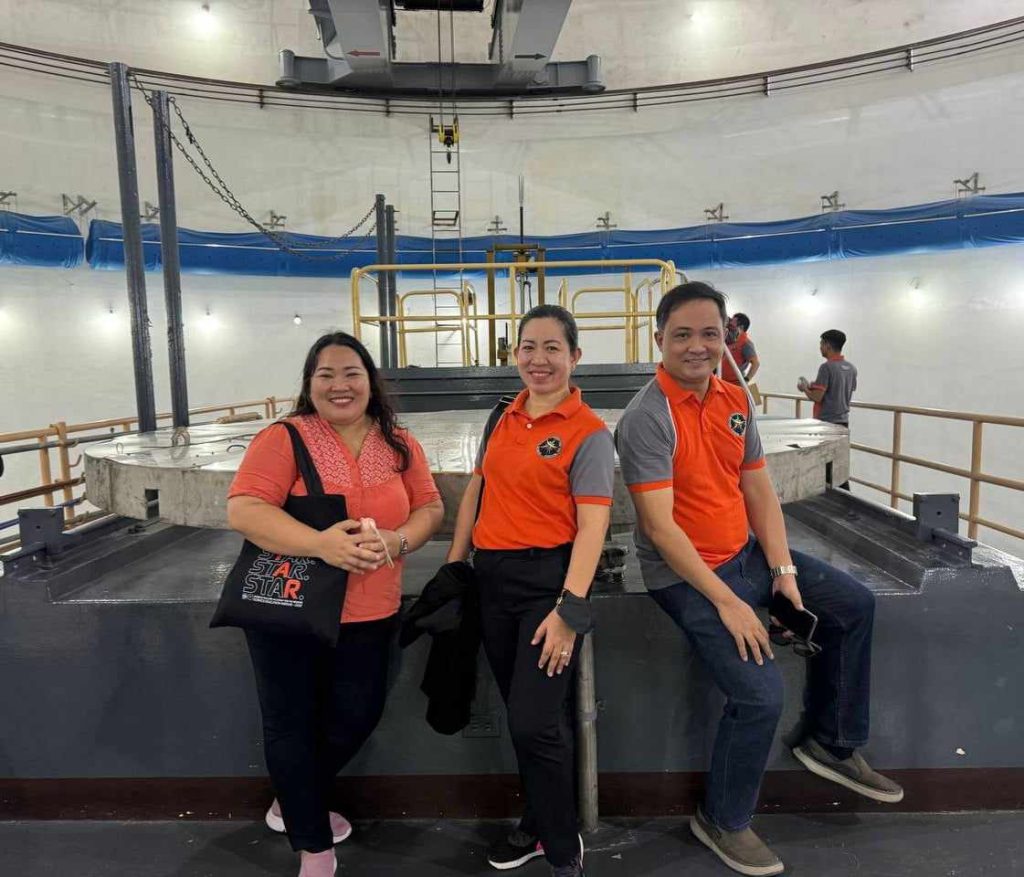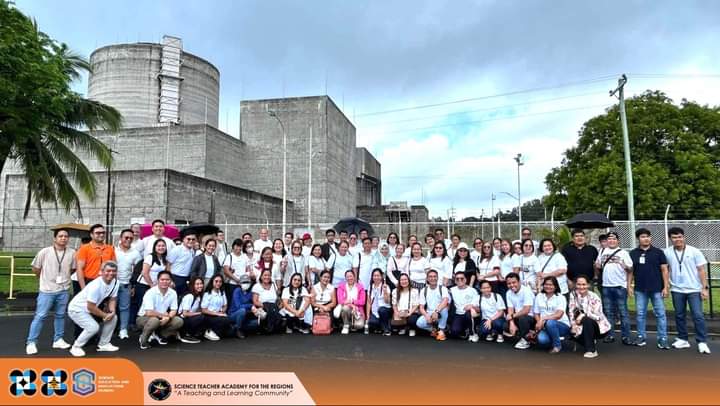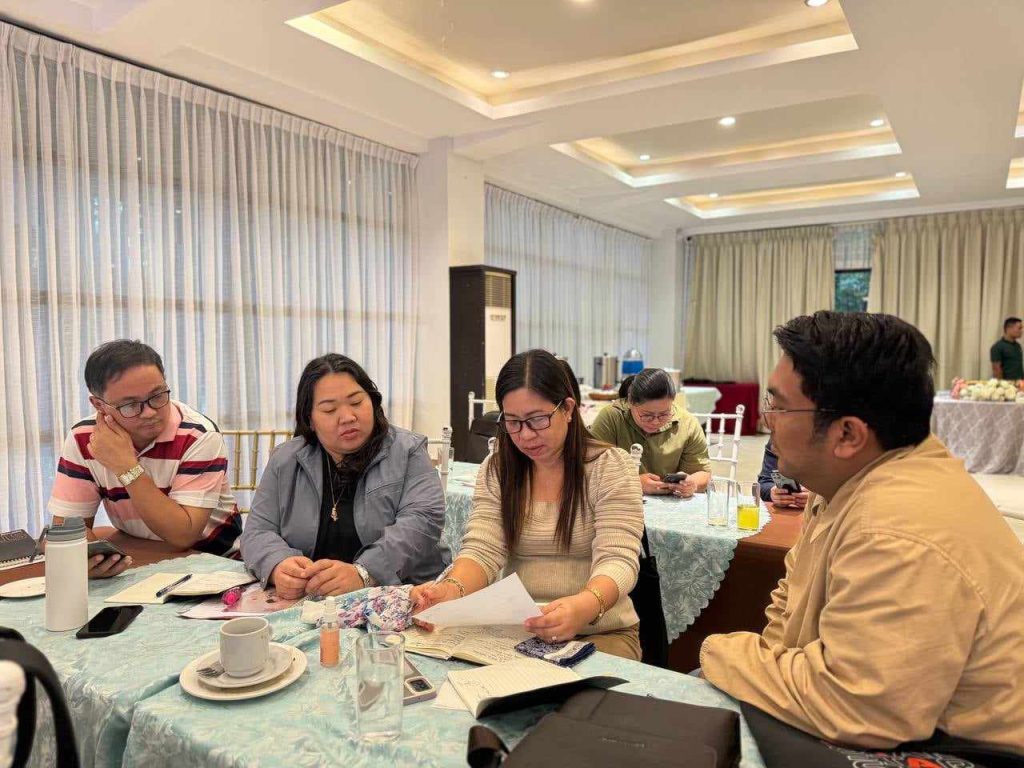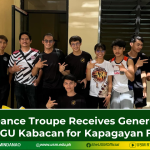
USM Dance Troupe Receives Generous Support from LGU Kabacan for Kapagayan Festival
August 12, 2024
MinTech Visits President Garcia
August 14, 2024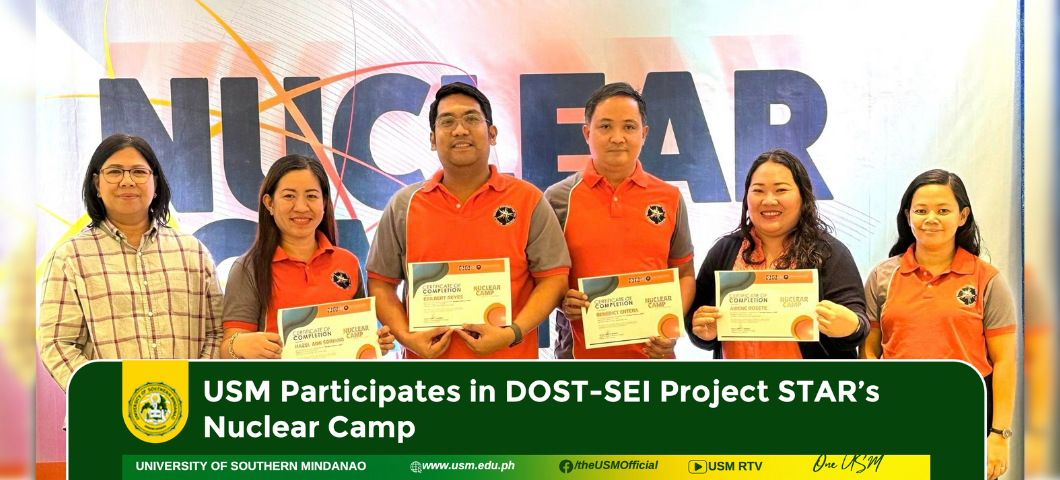
Faculty Members from the University of Southern Mindanao (USM) took an active role in the Nuclear CAMP (Capacitating and Mentoring Program) organized by the Department of Science and Technology – Science Education Institute (DOST-SEI) under Project STAR. The event, held from August 5 to 8, 2024, at Estancia de Lorenzo in San Mateo, Rizal, gathered participants from 17 partner universities and DepEd Regional offices across the country.
Representing USM were Science and Physics Professors – Prof. Hazel Ann Soriano, Prof. Airene Rosete, and Prof. Benedict Entera. They joined the esteemed trainers from the Science Teacher Academy for the Regions (STAR) in a series of discussions and workshops led by invited experts in the field. The four-day CAMP aimed to deepen the participants’ understanding of nuclear science and technology and its applications in health, industry, agriculture, and environment along with its safety and risk management.
One of the highlights of the CAMP was the visit to the Philippine Research Reactor-1 Subcritical Assembly for Training, Education, and Research (PRR-1 SATER), the country’s only nuclear reactor training facility. This visit provided the participants with practical exposure to nuclear research and education, emphasizing the facility’s critical role in advancing the country’s nuclear capabilities.
The CAMPers also had the opportunity to visit the Philippine Nuclear Power Plant (PNPP) in Morong, Bataan, the sole nuclear energy reactor in the Philippines. During this visit, they received an orientation and lecture on the significance of nuclear power generation in the country, exploring the reactor’s features, history, and the various scenarios surrounding its construction, closure, and potential future.
Spearheaded by DOST-SEI Project STAR in coordination with the Philippine Nuclear Research Institute (DOST-PNRI), the Nuclear CAMP was designed to introduce fundamental nuclear concepts and highlight their importance in basic education. The CAMP also aimed to showcase the contributions of nuclear science and technology to the country’s energy sector, inspiring educators to incorporate these critical topics into their teaching.
